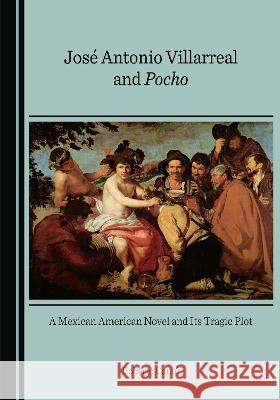Jose Antonio Villarreal and Pocho: A Mexican American Novel and Its Tragic Plot » książka
Jose Antonio Villarreal and Pocho: A Mexican American Novel and Its Tragic Plot
ISBN-13: 9781527588769 / Angielski
This book blends biography, history, and literary criticism in its analysis of Pocho (1959), Jose Antonio Villarreal's evocative and semi-autobiographical novel about Richard Rubio, a Mexican American youth raised in a pastoral community in central California where people self-identified according to race, ethnicity, or religious affiliation. Richard is the son of an Indigenous Maya mother and a Mexican, fair-skin father who fought in the 1910 Mexican Revolution as a cavalryman, placing Richard outside the town's imposed and regulated ethnic identities. In spite of his varied ancestry, his American birth, and his probing intelligence, Richard's Indigenous appearance casts him as a social outsider. Pocho was written over a nine-year period of vigorous creativity, and with Villarreal's power of recall and imagination at their prime. In writing his inaugural novel, Villarreal drew inspiration from modern narratives (paintings, novels, films), and from ancient Greek tragedy to create a Mexican American version of its classical drama ancestor. This book's critical approach to Villarreal's literary work is intelligibly written so as to be of access to a broad and all-inclusive readership and institutions, from college and university professors, public libraries, and the general reader to students of US, Mexican American, and world literatures.











